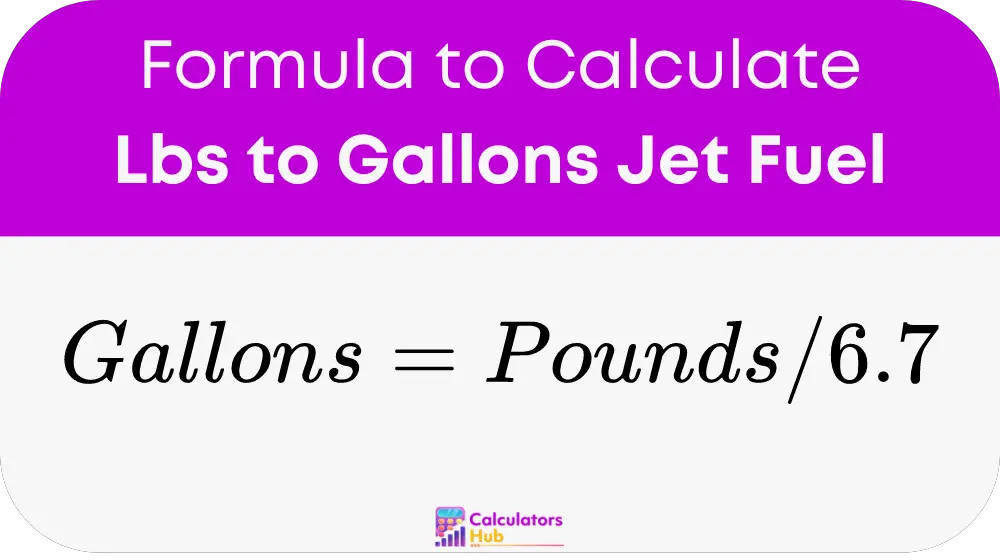The Lbs to Gallons Jet Fuel Calculator is an essential tool that converts the weight of jet fuel, measured in pounds, into its equivalent volume in gallons. This conversion is crucial for fuel logistics, planning, and ensuring that aircraft carry the correct fuel load for their missions.
Formula of Lbs to Gallons Jet Fuel Calculator
To convert pounds of jet fuel to gallons, it's important to understand the role of density. Density, which can vary slightly by jet fuel type and temperature, is crucial for this conversion. For Jet-A, the most common type of jet fuel, the average density is about 6.7 pounds per gallon. The formula for converting pounds to gallons using this average density is:

This simple formula allows quick conversions and helps in making accurate fuel calculations.
Conversion Table
For convenience, below is a conversion table that shows common weights and their corresponding volume in gallons, calculated using the standard density:
| Pounds (lbs) | Gallons (Using 6.7 lbs/gallon) |
|---|---|
| 100 | 14.93 |
| 500 | 74.63 |
| 1000 | 149.25 |
| 2000 | 298.51 |
This table can be used as a quick reference to avoid manual calculations each time.
Example of Lbs to Gallons Jet Fuel Calculator
Consider a scenario where you need to convert 1500 pounds of jet fuel to gallons. Using the formula:
Gallons = 1500 / 6.7
his gives approximately 223.88 gallons, demonstrating the calculator's utility in practical scenarios.
Most Common FAQs
A: The density of jet fuel typically averages around 6.7 pounds per gallon but can vary slightly depending on the specific type and temperature conditions.
A: Temperature can cause fluctuations in density; as temperature increases, density decreases, which can affect volume calculations.
A: While primarily designed for jet fuel, the basic principles can apply to other fuels if the correct density values are known.